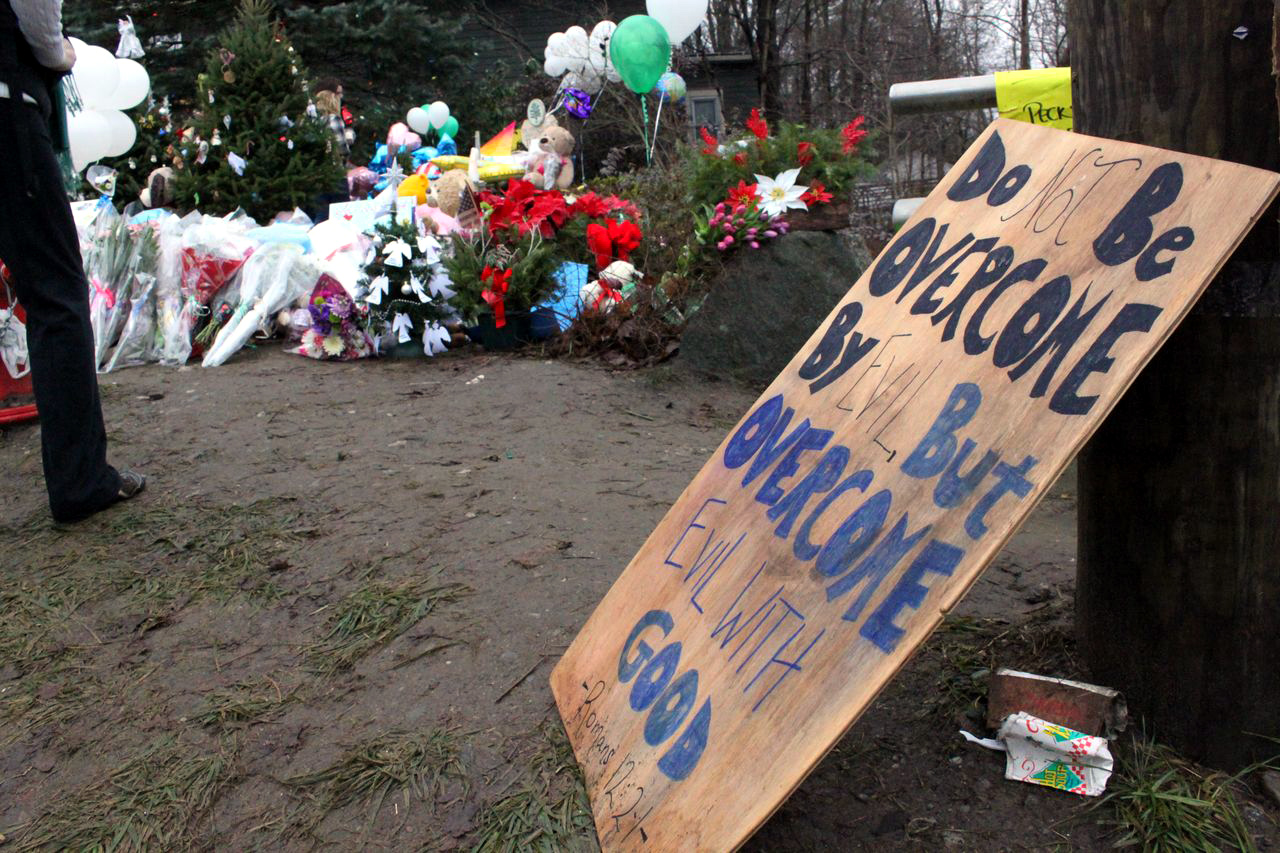
NASHVILLE (BP) — “Sickened.” “Horrific news.” “Groaning.” Rachel uncomforted, “weeping for her children.” These thoughts were expressed by Southern Baptists on social media following the senseless Dec. 14 slaughter of 20 children and six adults at Sandy Hook Elementary School in Newtown, Conn.
Many leaders and commentators wrote thought-provoking articles and editorials to comfort and lead the nation at this trying time, a season reserved to honor our Savior’s birth. Take time this holiday season to reflect on the Lord’s goodness in times of tragedy, reviewing the comments made in response to the Newtown tragedy.
— Begin with Baptist Press’ compilationof tweets, such as that by North American Mission Board church planter Terry Dorsett that the many prayer meetings held prove “that deep down inside, our nation still believes.”
— Attorney Shannon Royce, president of the nonprofit ChosenFamilies.org for families living with hidden disabilities, challenges us to begin a serious discussion of the realities of mental illness. In her First Person column, she writes, “We need to understand better what happens when a mental health challenge and evil meet, what happens when disability mingles with sin. We see the devastating results. We need to consider what we can do to prevent them from occurring.”
— Southern Baptist Theological Seminary President R. Albert Mohler
thoroughly examines the heinous crime, quoting Jeremiah 31:15: “Thus says the LORD: ‘A voice is heard in Ramah, lamentation and bitter weeping. Rachel is weeping for her children; she refuses to be comforted for her children, because they are no more.”
— Why didn’t God prevent the tragedy? Jerry Sutton, Midwestern Baptist Theological Seminary’s vice president for academic development, considers the age-old question of why God allows such evil to manifest. “In this present age, we live in a world in revolt against God who, in His patience, is permitting the revolt all the while holding out His hands and beckoning humanity to return to Him,” Sutton writes.
— How do we move forward, and who do we blame? Trevin Wax, managing editor of LifeWay Christian Resources’ The Gospel Project, encourages us to look within ourselves. “We cannot point fingers. We all share in the guilt of allowing ourselves to be desensitized to violent behavior. We need the transformation of the Gospel to reach into this tender area and change our hearts,” Wax writes.
— Arkansas Pastor Ronnie Floyd, author of “Our Last Great Hope,” reminds the church of its calling to weep with those who weep, and of its power to comfort God’s people. “While we weep, we need to rise up in God’s power, knowing the Lord alone is our strength. As our own tears flow, we need to pray for those who are most deeply grieved and for those who lead us in our great nation called America. As hearts are softened and tears flow, optimism is rising within me again that, as Americans, our greatest days are ahead of us.”
— Jim Veneman, Union University director of visual communication and assistant professor, takes a fresh perspective of the event, looking through the eyes of a photographer. Photographs, Veneman said, can make us more aware of reality by capturing a moment in time. “Although our nation has been hurt deeply, in this season we also have reason to celebrate. We celebrate the birth of our Savior, Jesus Christ. We can push back the darkness that engulfs us and experience a God-given moment if we choose to see it. A photograph of such a moment can be a reminder of hope and can help lead us forward.”
— Mark Coppenger, a professor of Christian apologetics at Southern Baptist Theological Seminary and director of its Nashville extension center, considers whether the U.S. can fix the problem of gun violence, on school grounds and elsewhere. “Perhaps the Lord will send an antiseptic-like awakening to our land, and we’ll enjoy a season of decline in slaughter — on the school grounds, in the streets, at the clinics, in the homes and on the roads. Perhaps more will simply come to their natural Romans 1 and 2 senses,” Coppenger writes. “Either way, the comprehensive fix won’t arrive till Jesus returns.”
— Russell D. Moore, dean of Southern seminary’s school of theology, discusses the evil of the massacre. “Satan is, Jesus tells us, a ‘murderer from the beginning,’ because he hates life itself,” Moore writes. “And he hates the life of children, particularly, because they picture something true about Jesus of Nazareth.”
Moore cautions America not to pretend to understand iniquity nor to offer pat, easy answers to the grieving parents. Rather, he writes, “The mystery of evil is a declaration of war on the peace of God’s creation. The war goes on, but not for long.
“And sometimes the most warlike thing we can say, in an inhuman murderous age like this one, is ‘It’s beginning to look a lot like Christmas.'”
–30–
Compiled by Baptist Press staff writer Diana Chandler. Get Baptist Press headlines and breaking news on Twitter (@BaptistPress), Facebook (Facebook.com/BaptistPress ) and in your email ( baptistpress.com/SubscribeBP.asp).

















